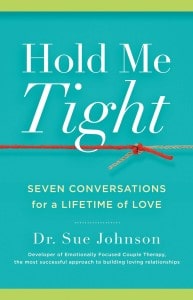Yes, this woman messes up on a regular basis. Repeatedly. Frequently. And I’ve done it again. And I hurt. Yes, I take risks. I swing the bat. And I strike out. Far more than I get a hit. But when I try to hide my vulnerability, someone else gets hurt. I hate that.
When I take matters into my own hands and pretend like I didn’t mess up or try to prevent others others from knowing about it, I’m living in the flesh. And since I’m dead to sin and alive in Christ, that simply won’t do!
Therefore if anyone is in Christ, he is a new creature;
the old things passed away; behold, new things have come.
(2 Corinthians 5:17, NASB)
From Vulnerability to Shame
You’ve no doubt watched a baby learning to walk, yes? He’s vulnerable. He falls down. A lot. He cries. He looks for empathy. But, no matter what, it’s in his DNA to get back up and try again. His vulnerability doesn’t stop him. He’s just learning what doesn’t work in walking. And he’s training his muscles to do what they’re created to do.
However, long before he reaches adulthood …
- life experience will teach him to hide his vulnerability.
- He will go from knowing he’s failed to believing he’s a failure.
- And that’s called shame.
Everyone experiences vulnerability and shame. And everyone knows shame can be debilitating. But men and women think about vulnerability and shame very differently.
Women and Vulnerability
The point where vulnerability hits us women hardest is in our belief that we must do everything perfectly. Like the Proverbs 31 Woman. Which, of course, we can’t. We compare ourselves to other women – mostly the airbrushed ones – and anxiety takes over. Here are two ways to look at it:
- Psychologically: When you hide your vulnerability and set yourself up as “having arrived,” you’re partnering with shame. You’ve set up a wall between you and the man you love. And the disconnection hurts you both. Deeply.
- Spiritually: Jesus has set you free to learn without fearing your failures. Perfect love casts out fear. Because fear has to do with punishment. And God is not about to punish you for being vulnerable. Jesus took your punishment for you so that you would be free to learn to walk in His Righteousness instead. (1 John 4:18)
Men and Vulnerability
I’ve written extensively about men and vulnerability in my books and could simply quote myself here.
- Psychologically: But for this post, I want to quote Dr. Brené Brown in her TED video, “Listening to Shame.”
For men, shame is not a bunch of competing, conflicting expectations. Shame is one: Do not be perceived as what? Weak. I did not interview men for the first four years of my study. It wasn’t until a man looked at me after a book signing, and said, “I love what [you] say about shame, I’m curious why you didn’t mention men.” And I said, “I don’t study men.”And he said, “That’s convenient.”
And I said, “Why?” And he said, “Because you say to reach out, tell our story, be vulnerable. But you see those books you just signed for my wife and my three daughters?” I said, “Yeah.” “They’d rather me die on top of my white horse than watch me fall down. When we reach out and be vulnerable, we get the shit beat out of us. And don’t tell me it’s from the guys and the coaches and the dads. Because the women in my life are harder on me than anyone else.”
- Spiritually: Our Creator never meant life to be that way for men! That means He is deeply invested in helping us make things right again! (Ephesians 5:21-33)
He who finds a wife finds what is good
and receives favor from the Lord. (Proverbs 18:22)She brings him good, not harm,
all the days of her life. (Proverbs 31:12)
Problem or Possibility?
Whenever a new couple comes to me for counseling, The Lord quickly shows me what He has in mind for them. So my initial goal is always to help them see how their issue, when the problem is defined, is pointing toward the possibility for their marriage. That is, without the issue they would probably continue to ignore the problem – and thereby miss out on all that God has for them both.
My method is pretty easy actually. You can do it, too. Just define the problem; then name its opposite. And there you have it!
If you’d like some help identifying your possibility,
just send a message to mail@drdebismith.com
HINT: The problem is usually the how we deal with our vulnerability (by being defensive) and shame (by hiding).
The Truth: There is Freedom in Vulnerability
Psychologically: People who can allow themselves to be vulnerable with one another have achieved the Core Skill needed for Emotional Connection. And according to Dr. Brown, vulnerability is also “the birthplace of innovation, creativity and change.”
Spiritually: We are free to stumble while we are learning. The Lord knows we are dust. After all, He is the Potter, and we are the clay. (Jeremiah 29:16)
Very truly I tell you, unless a kernel of wheat falls to the ground and dies, it remains only a single seed. But if it dies, it produces many seeds. Anyone who loves their life will lose it, while anyone who hates their life in this world will keep it for eternal life. (John 12:24-25)
Therefore, brothers and sisters, we have an obligation—but it is not to the flesh, to live according to it. For if you live according to the flesh, you will die; but if by the Spirit you put to death the misdeeds of the body, you will live. (Romans 8:12-13)
REMINDER: Seek the Holy Spirit to examine the Scriptures.
… they received the message with great eagerness and examined the Scriptures every day to see if what Paul said was true. (Acts 17:11b)




 As a Seminar Director for Prepare-Enrich, I’ve helped launch marriage programs with a lot of other therapists, pastors, and lay counselors.
As a Seminar Director for Prepare-Enrich, I’ve helped launch marriage programs with a lot of other therapists, pastors, and lay counselors.
 Be strong and courageous. Do not be afraid or terrified because of them, for the
Be strong and courageous. Do not be afraid or terrified because of them, for the